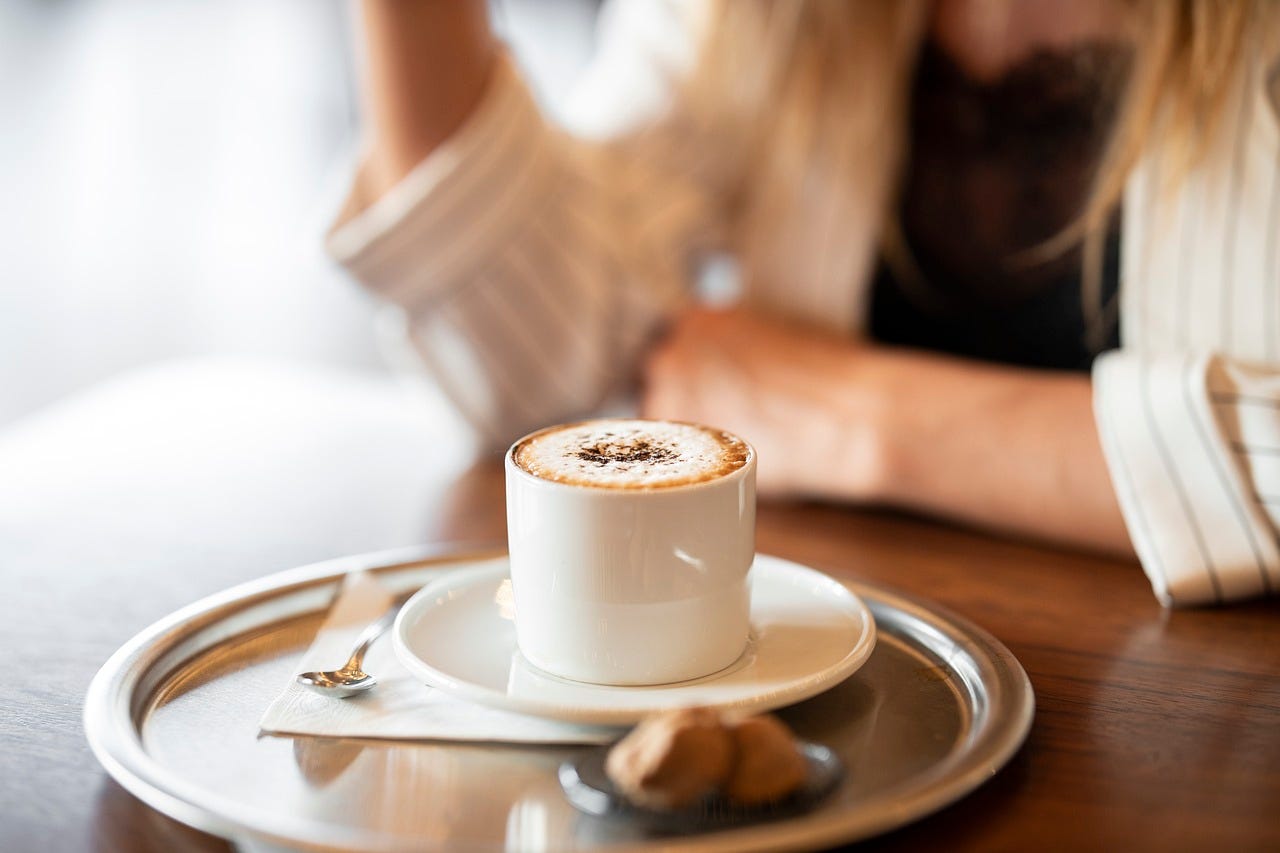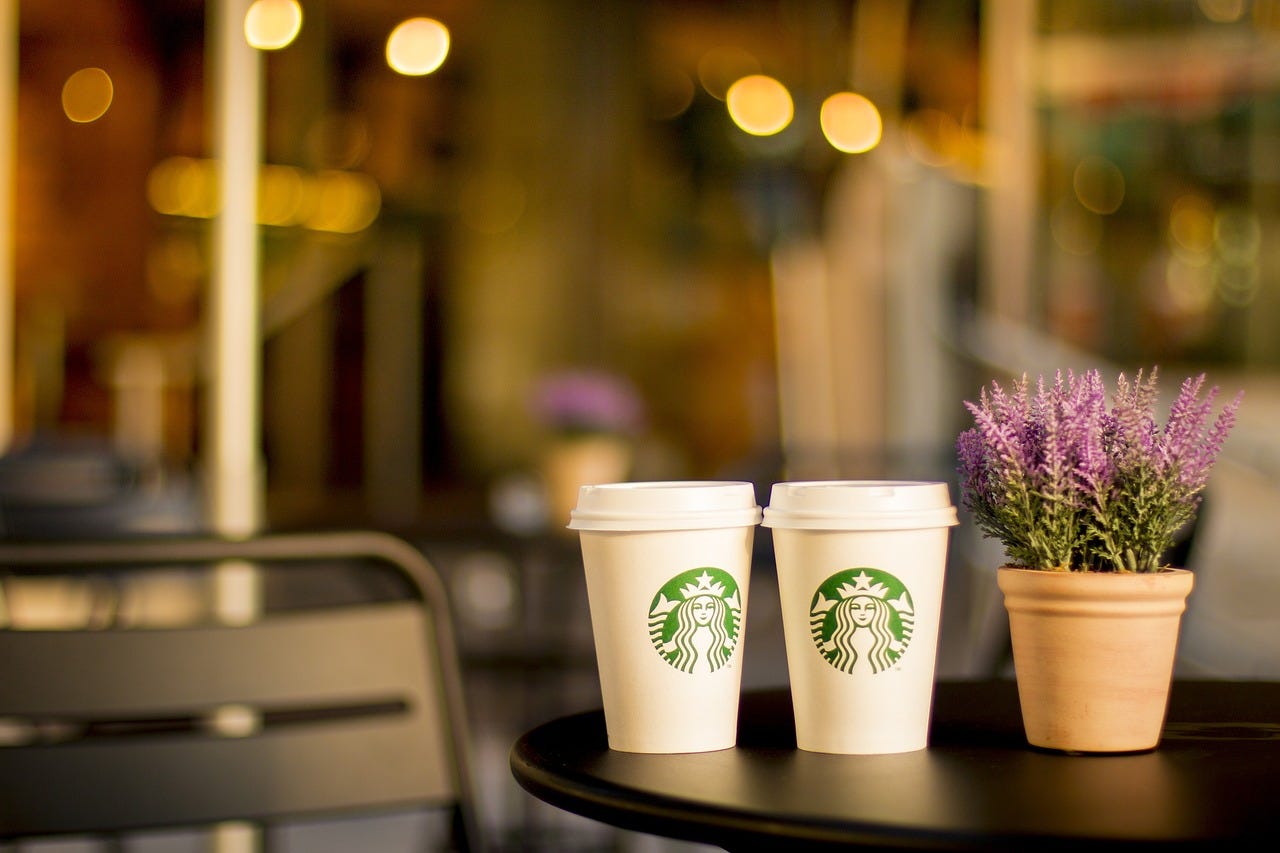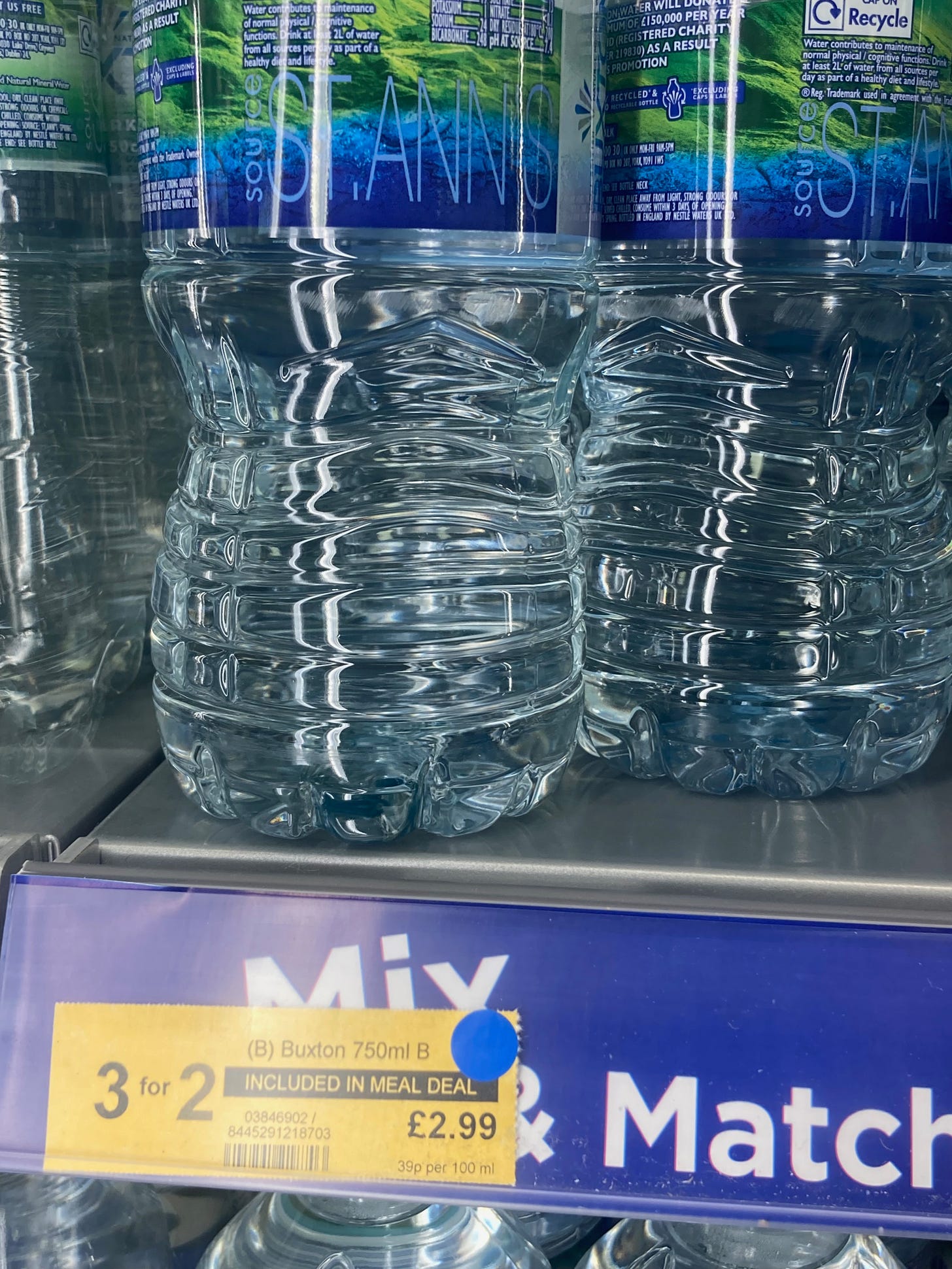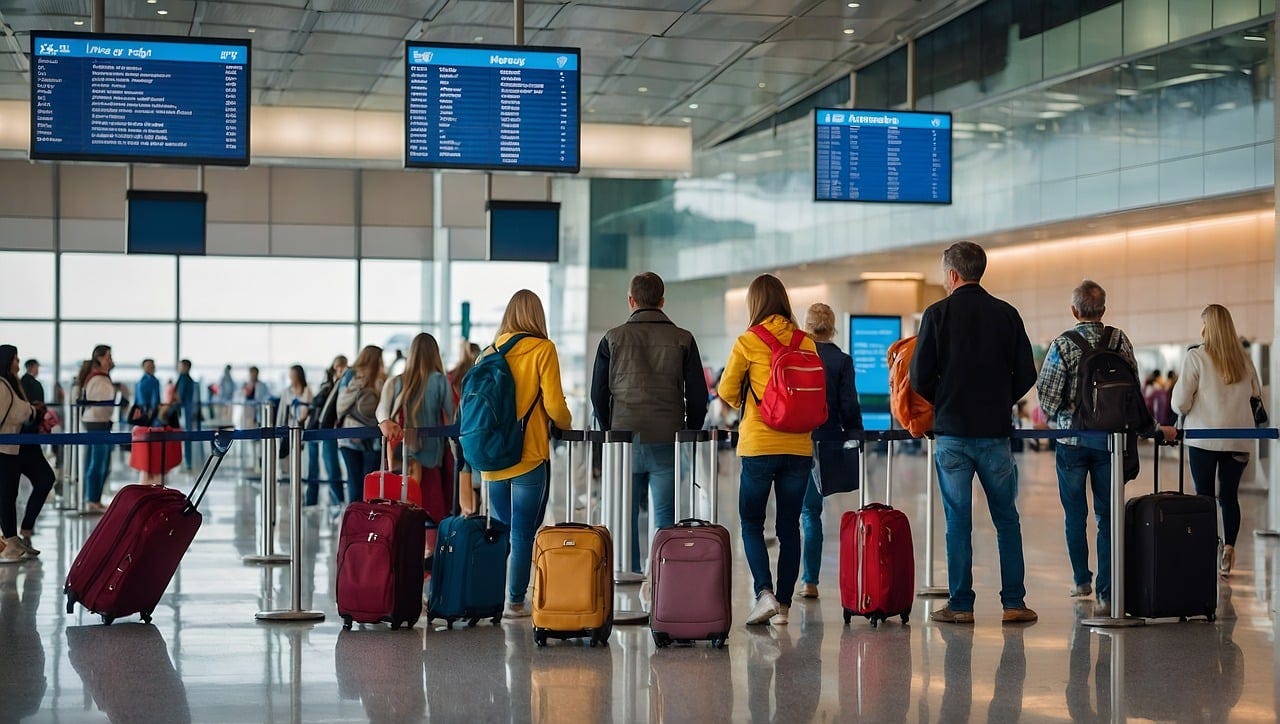At the airport again
Don’t kick off if you’re waiting two minutes more than you’d like to for your coffee at the airport. I know service staff can have early starts but I didn’t realise how early until I got talking to a barista at Pure cafe at Gatwick North Terminal the other day and he said that they generally started work at 3.45am.
And there was I feeling sorry for myself having to get up an hour after that for my flight.
“Thank god for the free coffee,” he said. “If it wasn’t for that I don’t know what I’d do. Keeps us going through the day.”
Well, that’s good a coffee outlet charging £3.95 for a rather weak flat white gives its staff free coffee.
At UK airport cafes they usually ask you whether you’re eating in (ie in the generally overcrowded seating area by the cafe’s counter) or it’s a takeaway (which equates to sitting a few metres further on in the airport’s general seating area). This isn’t so they can furnish you with crockery and cutlery rather than a paper cup should you say you are eating in. Many cafes don’t have reusable cups, mugs, spoons and the rest anyway, despite the worldwide need to reduce disposable items for ecological reasons.
No, they ask because of the mad value added tax laws, which can increase the cost of your already overpriced order by another 20%.
VAT laws can be almost as puzzling as quantum physics. At cafes, all food and drinks consumed while eating on the premises are subject to VAT. However, cold items such as cakes, fruit and vegetables, bread and bread rolls, plain biscuits that are not chocolate-covered, flapjacks and cereal bars, salads, cold sandwiches and wraps are not subject to VAT if taken away.
But not all cold takeaway items are free of VAT. Ice cream, chocolates, sweets, chocolate-covered biscuits, sports nutrition bars (when does a cereal bar become a sports nutrition bar?), bottled water, smoothies and fruit juices all attract VAT.
Potato crisps are vattable, yet lentil and tortilla crisps are not. Snack company Walkers lost a court case over charging VAT on their their ‘Sensations’ poppadoms. They argued that they should be zero-rated based on their primary ingredient, gram flour, yet the tribunal found them to be comparable to potato crisps and therefore subject to the standard VAT rate. It’s a minefield.
Jaffa Cakes caused a huge rumpus in taxation circles as it was questioned whether, having a sponge base and chocolate coating, they should be considered cakes (and therefore VAT exempt) or biscuits, which, being covered in chocolate, would mean they attract 20% VAT. They were legally ruled to be cakes for VAT purposes due to their ingredients in an expensive case between McVitie’s and HM Customs and Excise, even though they are sold in the biscuit aisle at supermarkets.
Now we get to hot food. VAT should be charged on hot takeaway food and drink - as long as it is served at a temperature exceeding the ambient room temperature. Takeaway food that requires further preparation by the customer, such as reassembling or reheating, usually doesn’t attract the 20% tax. Usually.
And products that are advertised as hot, such as a ’freshly baked’ croissant - even if it’s not hot when sold - attract VAT.
I could continue with examples of the crazy VAT rules, but you’ve probably lost the will to live by now.
Anyways, I left the cafe, walking past the airport pub and a swathe of people were downing pints of lager, despite it being about 7.15am. It’s strange how some people lose all sense of time when they enter an airport.
People were walking around carrying duty free bags. It puzzles me what a fuss they make at security confiscating sharp objects like corkscrews and penknives, when bottles of spirits, that you can carry into the cabin, are highly flammable, and when broken become a significant sharp weapon.
Then the fire alarm bells suddenly went off, followed by a public address system announcement: “Your attention please, the fire alarm has been activated in another area. Please remain where you are and await further announcements.”
This was very efficient, however the ringing bells and that announcement then continued incessantly for about 10 minutes. It became torturous.
The retail outlets were selling plastic bottles of water for £2.99 or so, so it was gratifying to fill up my metal water bottle for free. But my pleasure at saving £2.99 soon evaporated when I struggled to find a seat because so many people had either laid across several because they wanted a nap, or simply hogged several seats with their bags.
When I did finally find a seat - though someone nearby was watching television loudly on their phone, clearly not aware that headphones exist - the next problem was finding a power point to charge my laptop’s battery. I’ve noticed that these are becoming more and more scarce at many airports, and that many airports are removing those that were there, presumably because in this age of high energy prices, continual usage really ramps up airport running costs.
It didn’t matter that I didn’t have much battery left, as I couldn’t get the Wi-Fi working anyway (which is not a problem if you can use your personal hotspot on your phone). Wi-Fi in public spaces like airports and train stations has generally improved, but many still make it more difficult to get online than finding the Lost City of Atlantis.
Quite a few airports make it unnecessarily difficult to obtain Wi-Fi. At Geneva for example, you are required to either retrieve an SMS code (that seldom arrives at airports in my experience) or require you to present your passport or boarding card at the visitors’ centre or a kiosk at arrivals to get an access code. You invariably only get this information once you have passed through security.
Recently I was at Fethiye Airport in Turkey, and there were signs near the entrance saying that free Wi-Fi was available. When I went airside I found that you could only get an access code for it before going through security, otherwise you had to pay to join, again after having to obtain an access code on your phone that I doubt would arrive.
When I got to the gate of course many passengers had formed a huge queue, despite boarding not due to start for 25 minutes. Why on earth do they do that?
We were bundled into a bus to travel from the gate to the aeroplane. It was only a four-minute ride, yet we had to wait ages for the bus to fill up to the required sardine tin standards.
It was nice to be greeted by two flight attendants when stepping onto the plane. Why don’t we get that service when we board a train? Especially as the tickets are usually far more expensive.
When we eventually seemed set to go, with everyone on the plane having put their bags in the overhead cabins, moved seats when told they were in the wrong one, and all the other rigmarole of boarding a plane, we waited. And waited. For the latecomers. There’s usually one, meaning that your flight is likely to lose its take-off slot…







Another true story -and insightful, too! Didn't know that some food and drinks are cheaper when taken away.